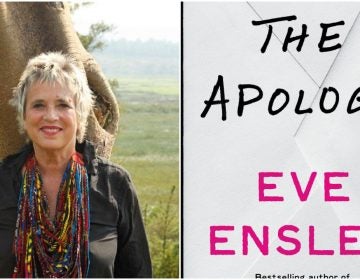Disarming the digital mob mentality

Nate Parker is shown arriving at the Sundance Night Before Next Benefit at The Theatre at Ace Hotel in Los Angeles. (Photo by Willy Sanjuan/Invision/AP)
It’s hard to read the news when you’re a survivor of rape. Each case is different, but I see shades of my own attack and its aftermath in the stories I read about women and girls who face a painful, life-long process of recovery after such an intimate violation. When I find out that another admitted rapist has been acquitted or sentenced to what amounts to a vacation in prison, I’m angry about it for days. The idea that Martha Stewart did more time than Brock Turner is still an obscene standard of justice in my eyes.
At the same time, I’m horrified by the recent antics of advocates for the survivors. I’m particularly troubled by the digital lynch mob that has set its sights on Nate Parker, director of the film “The Birth of a Nation,” in wide release on Oct. 7.
For the unacquainted, Parker was tried and acquitted of raping a female classmate while he was a student at Penn State in 1999. In the years since, Parker has become a filmmaker, a husband, and the father of five daughters. His life since 1999 stands in stark contrast to that of his classmate and accuser, who was in and out of hospitals for PTSD and depression before taking her own life in 2012.
I want to be clear that I do not condone Parker’s actions in 1999, and I’m disgusted by the remarks he made about the incident to Variety this summer.
Dismissing the pain of his victim for the sake of his own, and then downplaying the damage caused by his actions, is disgraceful. But his 17-year-old case and the state of his life right now make me wonder: When exactly does someone reach the point where they are deserving of forgiveness? How long do we condemn a person for his crimes, convicted or not, before we decide he can move forward with his life?
The incident between Parker and the woman who accused him of rape is the only incident we know of where he forced himself on another human being. There doesn’t seem to be a pattern of behavior indicating that he is a threat to women, yet the response from social media users and commentators online has been uncomfortably aggressive towards this man.
Becoming the evil we deplore
We live in an age where feedback is swift and devoid of consequences. Thanks to social media networks and clickbait websites posing as trusted news sources, it’s never been easier to incite a digital backlash and scapegoat individuals and different groups of people. In this country, we’re not known for behaving rationally when we encounter people who we perceive as a threat to our way of life. We’ve executed “witches,” lynched African-Americans, blacklisted Communist sympathizers, and now we harass women and minorities for daring to be themselves (see Gamergate, and Ghostbuster Leslie Jones).
Our newest form of mob mentality is harassment and public shaming via social media and blogging. Since taking the plunge into social media in 2004, I’ve seen every possible form of digital shaming disguised as social justice, from folks reporting Twitter users to their employers for writing racist tweets to hackers breaking into secure servers and sharing private communications with the world in an effort to humiliate, control, and coerce individuals into uncomfortable and potentially traumatic situations by force.
Sound familiar?
The trouble with today’s digital lynch mob is that it works both ways. For every user that Twitter activists get (justifiably) fired, there’s a feminist Twitter user who sees her email inbox illegally accessed by unsavory hackers trying to silence her for sharing her views.
What do we actually accomplish by bombarding a person with nonstop reminders of his crimes? Will Brock Turner or Nate Parker suddenly become contrite and apologetic in the face of millions of Facebook users harassing them? Probably not. If anything, these men would probably internalize that criticism and come to hate anyone reminding them of their victims, which could put more women in danger.
Plus, by constantly calling out these men on public-facing websites, we re-traumatize their victims. If I saw pictures of my rapist on Facebook every time I logged on, I would never be able to process what happened to me and recover from it. We do a major disservice to survivors of rape and domestic violence by committing acts of harassment in their name against their attackers.
Starting a new conversation
I will never fully recover from what was done to me, but I would never want anyone to stage protests in front of my rapist’s house, write threatening messages about him online, or ensure that he gets fired from his job in my name.
It’s time for us to call off the digital firing squad and become better advocates for survivors of rape in our own lives. We need have more conversations about healthy relationships and consent with the men we’re close to and focus on the root causes of misogyny and violence against women and girls. It’s not a bad idea to make a donation or volunteer with organizations that help rape survivors, either.
So the next time you see a news story about the Nate Parkers or Brock Turners of the world, make sure your response online emphasizes your support of the survivor and her recovery as well as your sincere hope that the beginning of the end of rape culture is imminent.
Do it in her name. And mine.
WHYY is your source for fact-based, in-depth journalism and information. As a nonprofit organization, we rely on financial support from readers like you. Please give today.




